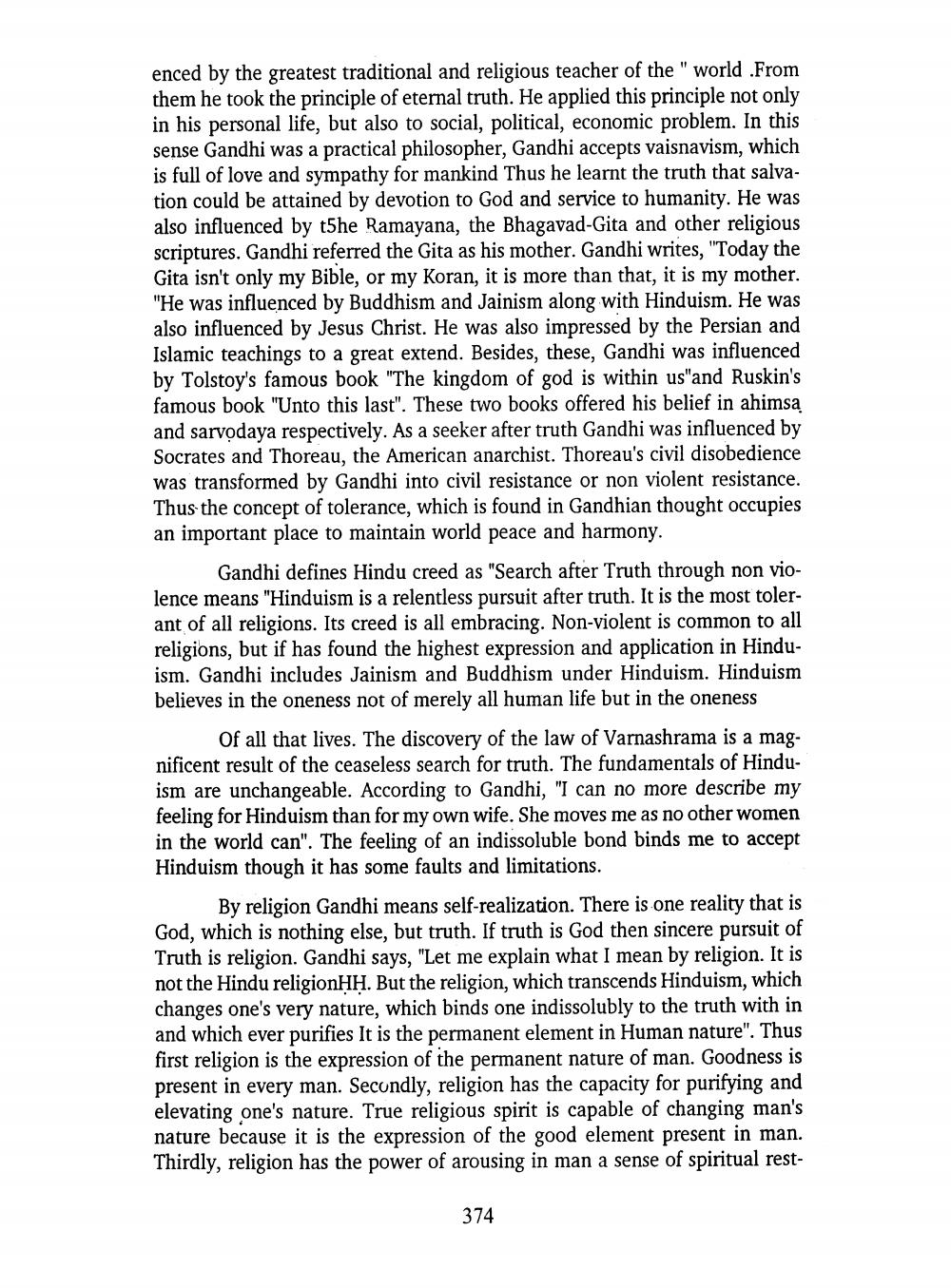________________
enced by the greatest traditional and religious teacher of the " world .From them he took the principle of eternal truth. He applied this principle not only in his personal life, but also to social, political, economic problem. In this sense Gandhi was a practical philosopher, Gandhi accepts vaisnavism, which is full of love and sympathy for mankind Thus he learnt the truth that salvation could be attained by devotion to God and service to humanity. He was also influenced by the Ramayana, the Bhagavad-Gita and other religious scriptures. Gandhi referred the Gita as his mother. Gandhi writes, "Today the Gita isn't only my Bible, or my Koran, it is more than that, it is my mother. "He was influenced by Buddhism and Jainism along with Hinduism. He was also influenced by Jesus Christ. He was also impressed by the Persian and Islamic teachings to a great extend. Besides, these, Gandhi was influenced by Tolstoy's famous book "The kingdom of god is within us"and Ruskin's famous book "Unto this last". These two books offered his belief in ahimsa and sarvodaya respectively. As a seeker after truth Gandhi was influenced by Socrates and Thoreau, the American anarchist. Thoreau's civil disobedience was transformed by Gandhi into civil resistance or non violent resistance. Thus the concept of tolerance, which is found in Gandhian thought occupies an important place to maintain world peace and harmony.
Gandhi defines Hindu creed as "Search after Truth through non violence means "Hinduism is a relentless pursuit after truth. It is the most tolerant of all religions. Its creed is all embracing. Non-violent is common to all religions, but if has found the highest expression and application in Hinduism. Gandhi includes Jainism and Buddhism under Hinduism. Hinduism believes in the oneness not of merely all human life but in the oneness
Of all that lives. The discovery of the law of Varnashrama is a magnificent result of the ceaseless search for truth. The fundamentals of Hinduism are unchangeable. According to Gandhi, "I can no more describe my feeling for Hinduism than for my own wife. She moves me as no other women in the world can". The feeling of an indissoluble bond binds me to accept Hinduism though it has some faults and limitations.
By religion Gandhi means self-realization. There is one reality that is God, which is nothing else, but truth. If truth is God then sincere pursuit of Truth is religion. Gandhi says, "Let me explain what I mean by religion. It is not the Hindu religionHH. But the religion, which transcends Hinduism, which changes one's very nature, which binds one indissolubly to the truth with in and which ever purifies It is the permanent element in Human nature". Thus first religion is the expression of the permanent nature of man. Goodness is present in every man. Secondly, religion has the capacity for purifying and elevating one's nature. True religious spirit is capable of changing man's nature because it is the expression of the good element present in man. Thirdly, religion has the power of arousing in man a sense of spiritual rest
374




